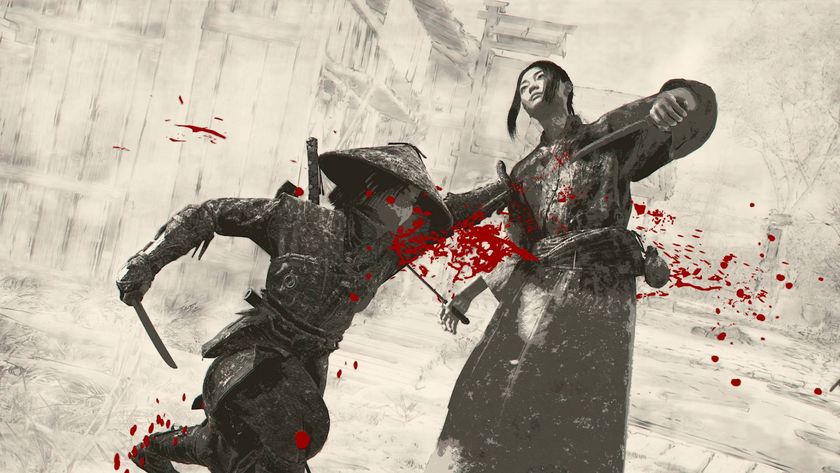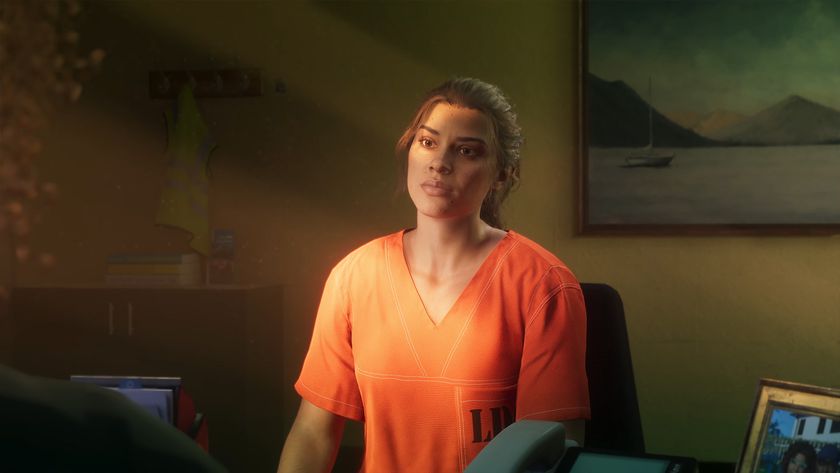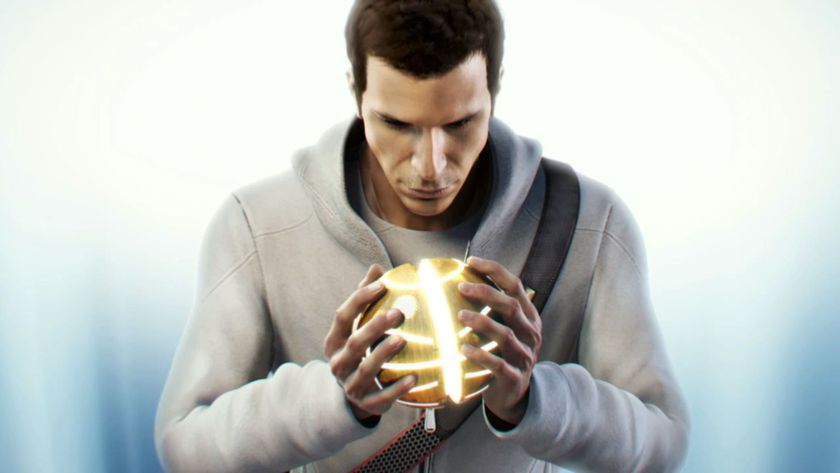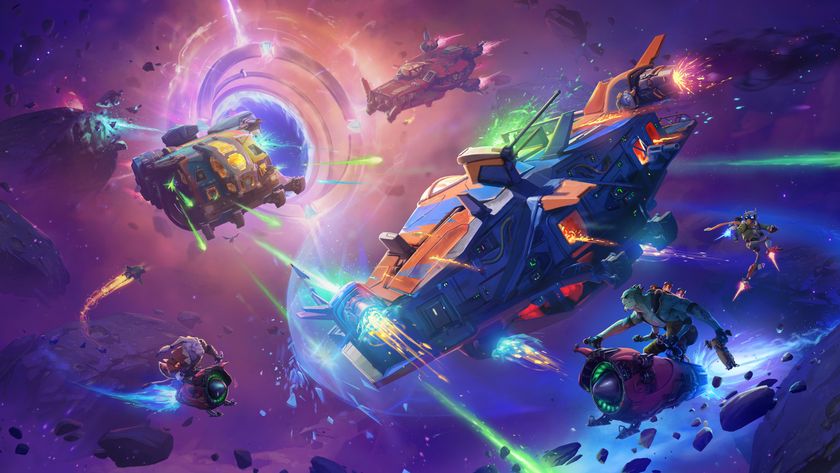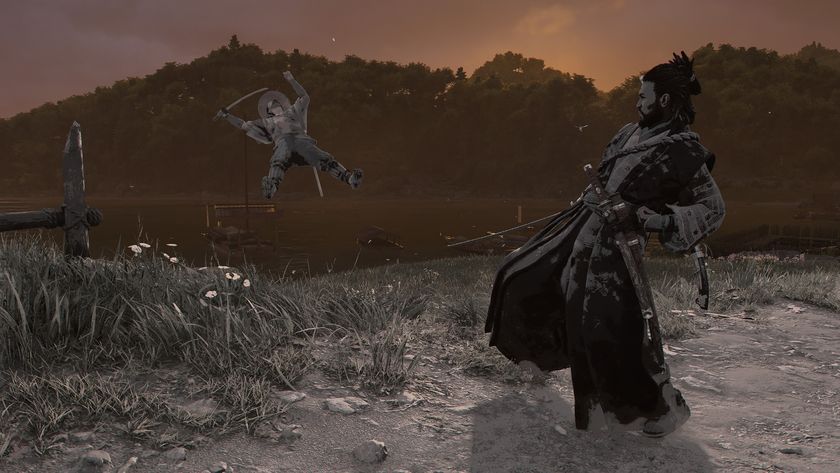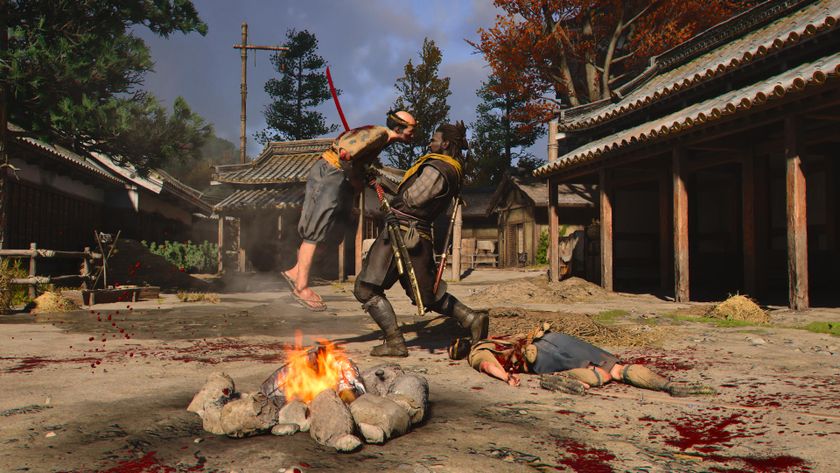Will games always have buggy releases?
And will there be justice for those who buy them?
For the games industry, though, it could have nasty implications. After all, a bug can range from a random crash to an AI orc with his arse stuck in a castle wall. Look hard enough and you’ll find bugs in any game: legal refunds could lead to fraudulent claims and industry death.

Above: A wonderous bit of post-modern artvia a glitch inFallout 3
“We empathise with the need, on the part of the consumer, to be able to purchase products that work,” says Dr Richard Wilson, CEO of TIGA, the industry body for UK developers. “We understand that. At the same time, UK developers are operating in a very competitive environment. This would put UK and EU game developers at a disadvantage against competitors elsewhere in the world.”
Francisco Mingorance, Director of Public Policy at Europe’s Business Software Appliance, believes digital content should not be subject to the same rules as toasters, pointing out that software is susceptible to malware, modification, and piracy. Also, the commissioner’s proposal could affect products like downloads, patches and updates, he says.
Wardell believes enforced refunds would be a disaster. “When Demigod came out, there were people who couldn’t launch the game, but it turned out to be due to Google Desktop. It had a system hook that was preventing Demigod from launching on some people’s machines. We had to work around it. But whose bug is that? It wasn’t really a bug at all: it was just incompatibility. Retailers are not in any position to make that call.”
Nevertheless, there is no excuse for a rushed game that makes your life a misery. TIGA’s Wilson says developers and publishers need realistic timetables for producing and delivering games. Shipping faulty products, after all, ruins our fun, and damages the industry.
“We need to ensure a customer gets good value for money,” says Wardell. “By doing so, they are more likely to purchase more. These are concepts that have been with us for thousands and thousands of years. In the technology industry, it seems like some people have decided that those long-standing rules don’t apply anymore. The reason we treat customers well is simple: we want them to continue buying from us.”
Sign up to the GamesRadar+ Newsletter
Weekly digests, tales from the communities you love, and more
Historic glitchfest: some notoriously buggy games
Vampire: The Masquerade – Bloodlines (2004)

Troika’s troubled masterpiece brought new meaning to the term “unfinished business”. The constant crashes and floating objects were far creepier than any undead bloodsucker, and a load of hidden content was buried beneath the code. However, gamers embraced Masquerade’s weird world, taking it under their wing like a sick kitten.
Grand Theft Auto IV (2008)

The initial PC port of Rockstar’s crime caper was allegedly more troubled than Afghanistan. Many users reported disappearing landscapes, vehicles spookily travelling along floating roads, and the inability to customise the graphics settings. Valve eventually relented, offering refunds to people who purchased the game through Steam on a case-by-case basis.
Boiling Point: Road to Hell (2005)

If the PC port of GTA IV had tonsillitis, Boiling Point had full-blown AIDS, what with dodgy framerates, disappearing cars, and missions that completed themselves when you didn’t even lift a finger. Underneath was a decent game, and the gaffs often made hilarious viewing, although it was like getting kicks from driving a car with no brakes.
Empire: Total War (2009)

A portion of the game community declared total war on SEGA’s otherwise brilliant RTS. “I appreciate the game would be amazing, fully worthy of 9/10, if in fact it would work for more than 10 minutes,” says peeved PC Zone UK reader Paul Rooney. Creative Assembly have been on the case with patches, but some players reckon that the game is still running poorly.
Dec 9, 2009


Who was axed, why, and what we'll miss because of it

What's life really like for some of the world's most reviled gamers?

Why are motion controls making real life so damned expensive?


